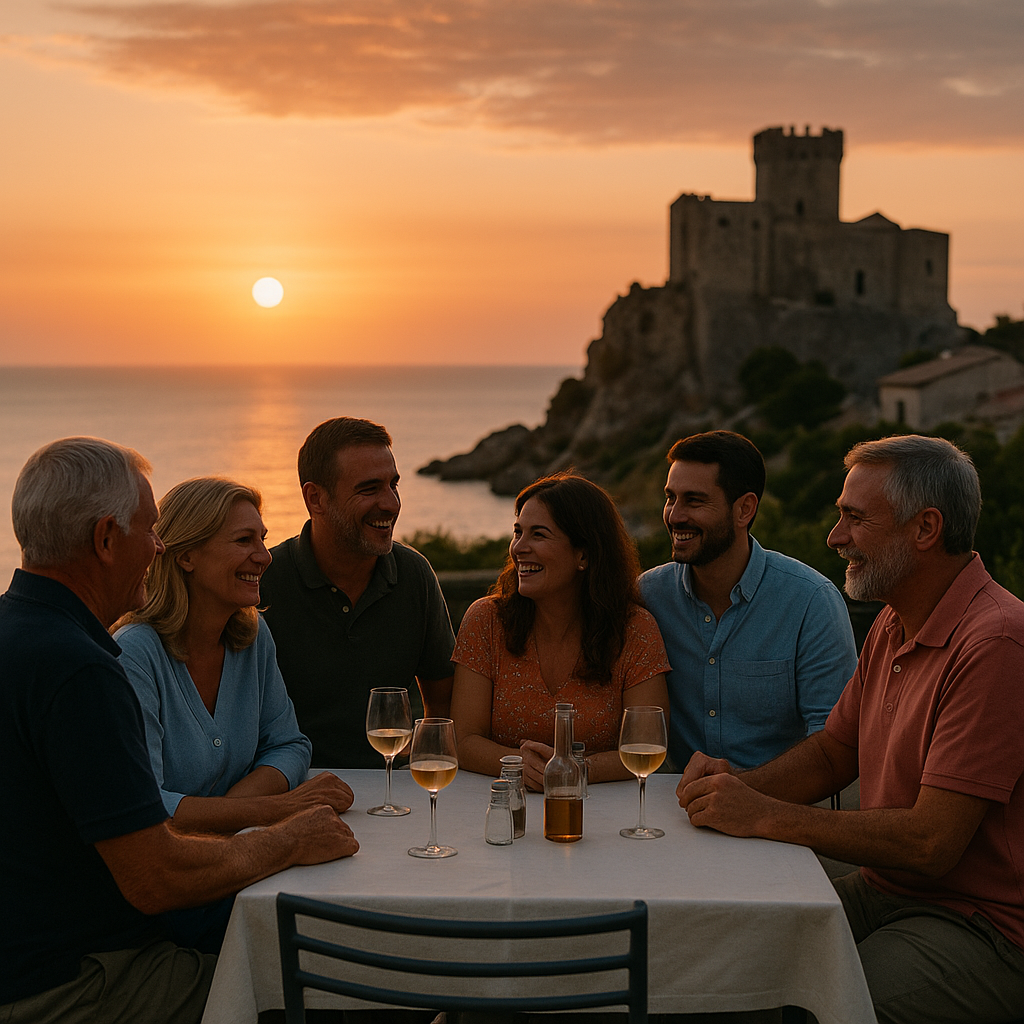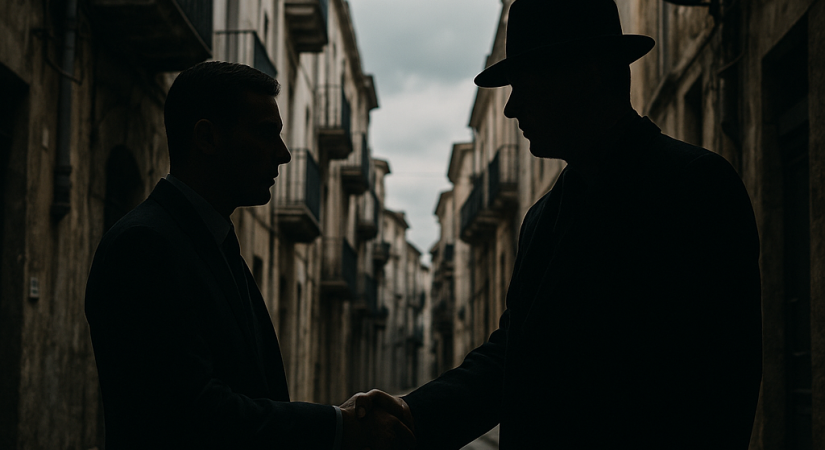Mafia, Legality, and Southern Hospitality – A Guide for International Buyers
Introduction
Italy — especially its South — has always fascinated those dreaming of a seaside home or a peaceful place to retire.
Today, the Italian property market is one of the most transparent in Europe, thanks to the oversight of notaries, licensed real-estate agencies, and strong anti-money-laundering regulations protecting all buyers, including foreigners.
This article draws on official sources such as the Italian Anti-Mafia Investigation Directorate (DIA), the Ministry of the Interior, the Bank of Italy’s Financial Intelligence Unit (UIF), and major national news agencies.
👉 Key sources:
- DIA – Semi-annual Reports
- Italian Ministry of the Interior
- UIF – Bank of Italy
- ANSA · Il Sole 24 Ore · La Repubblica
The Four Main Italian Mafia Organizations
’Ndrangheta (Calabria)
Today considered the most powerful and international, investing illicit profits through companies, logistics, and real-estate ventures under false names.
Cosa Nostra (Sicily)
Still influential, particularly in large public contracts and wide-scale tourism projects.
Camorra (Campania)
Flexible and urban, active in construction, trade, and local services.
Sacra Corona Unita (Apulia)
Now fragmented but still present, especially in tourism and coastal business operations.
📘 Source: DIA 2024 Report – Italian Ministry of the Interior.
Foreign Mafias in Italy: Presence and Risks
According to the Ministry of Economy and Finance and the UIF, Albanian, Nigerian, Chinese, Georgian, and Russian-speaking networks sometimes use legal businesses — including real estate — to launder money.
However, Italy’s notarial and banking systems ensure very high levels of traceability, which significantly reduces risk for foreign buyers.
📘 Sources: National Risk Assessment 2025 (MEF) · UIF Annual Report 2024.
Southern Italy Is Safer Than You Might Think
Contrary to stereotypes, official data from the Ministry of the Interior show that petty crime is concentrated in major northern and central cities such as Milan, Rome, Florence, Bologna, and Rimini.
In smaller southern towns, crimes against tourists and residents are far rarer.
The main concern in the South relates to the local economy — not to daily personal safety.
👉 Sources:
Criminal Acts Affecting the Tourism Sector
Investigations by ANSA and La Repubblica (December 2024) show that mafia groups have tried to infiltrate the tourism economy, but their pressure targets operators and business owners, not visitors.
Arson against beach clubs, threats to managers, and extortion attempts (“pizzo”) are economic coercion tactics, not violence against tourists.
📘 Sources: ANSA – “Tourism in the Mafia’s Crosshairs” · La Repubblica – “Mafias’ Grip on Tourism”
Threats to Journalists, Judges, and Entrepreneurs
During the first half of 2025, over 80 cases of intimidation against journalists were recorded, along with numerous threats to entrepreneurs and public officials involved in development projects.
Criminal networks continue to seek influence over economic and communication decisions.
📘 Sources: National Federation of Journalists (FNsi) · Criminalpol Report 2025 · Ministry of the Interior.
How to Invest Safely in Italy
- Work only with licensed real-estate agencies officially registered in the Italian Chamber of Commerce.
- Sign deeds exclusively with Italian notaries, who apply strict anti-money-laundering rules (Legislative Decree 231/2007).
- Make all payments via traceable bank transfers, preferably through a notary’s dedicated escrow account.
- Request the Prefecture “White List” when commissioning construction or renovation work.
- Contact Prefectures or anti-racket associations if any undue pressure occurs.
- Rely on local professionals (lawyers, surveyors, architects) for checks and documentation.
📘 Sources: UIF – Anti-Money-Laundering Papers · Prefectures – White List Register.
The Warmth of Southern Communities 🌿
Small Italian towns — especially in the South — have a unique gift for welcoming newcomers.
At first, tourists might be seen as curious outsiders, perhaps charged a few euros more at the market, but once they settle in, they quickly become part of the family.
Neighbors help each other, passers-by stop to lend a hand, and in any emergency Peppe or Micu will arrive before the police, with a smile and a joke.
This authentic spirit makes the South special — a place where daily solidarity remains the simplest way to feel truly safe.

🌸 Roseto Capo Spulico: A Happy Island in Southern Italy
Between the blue Ionian Sea and the gentle olive hills of Calabria lies Roseto Capo Spulico, a genuine “happy island” of southern Italy.
More than 200 international families have already chosen to buy their homes here, drawn by the area’s peace, mild climate, and real sense of safety felt year-round.
Many have gone further — making Roseto their permanent home, opening small businesses, or simply enjoying a slower, more human rhythm of life.
Roseto is a place where doors stay open and faces are friendly, where you can walk along the seafront at sunset without worry, and where quality of life is defined by simple things: the sea, the sun, and mutual trust.
A village that proves every day that in Southern Italy, one can live well, live happily, and live safely, embraced by nature and genuine human warmth.
Conclusion
Buying a home in southern Italy doesn’t mean taking risks — it means joining a community of honest, welcoming, and supportive people.
An investment in Calabria, Apulia, or Sicily can be both a sound financial choice and a path toward a more fulfilling, peaceful life.
Useful Contacts
Obiettivo Casa – Real Estate & Property Services by Sabrina Franco
📧 info@obiettivocasaroseto.com
🌐 www.obiettivocasaroseto.com
📞 +39 0981 913849
Visitors wishing to schedule viewings or take part in a full “Real-Estate Tour” can benefit from the special partnership with www.openbeb.com for stays and guided property visits.



